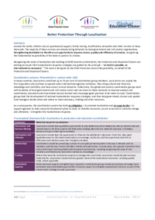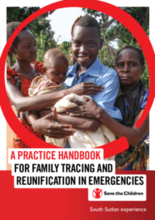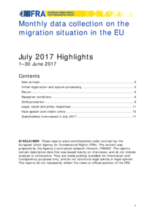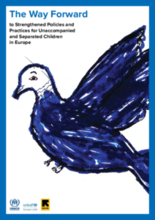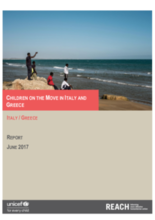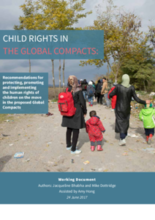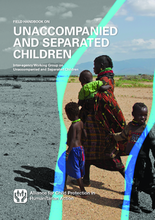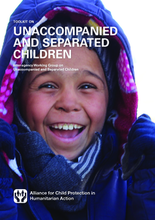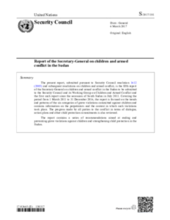Displaying 21 - 30 of 111
This technical note presents a conceptual framework for localisation in protection and education coordination. It includes a description of the role of coordinators and coordination groups in localization and examples of how localization can be integrated in the humanitarian program cycle.
This handbook consolidates learning garnered from Save the Children's experience of setting up, managing and investing in the Family Tracing and Reunification (FTR) programme in South Sudan in order to contribute to the strengthening of Save the Children’s approach to FTR in sudden onset of emergencies where Child Protection in Emergencies (CPiE) programmes need to respond to large scale family separations.
This report from the European Union Agency for Fundamental Rights (FRA) provides data on migration throughout the EU from 1-30 June 2017. The report includes data on the child protection situation for migrant children, particularly the identification, emergency placement and accommodation of unaccompanied children.
This paper, based on findings from a consultative process with a variety of actors, captures a multitude of concrete recommendations for more efficient and harmonized policies and practices, taking into account the best interests of unaccompanied and separated children (UASC) in Europe.
This report presents the findings from an assessment on the profile, drivers and intentions of refugee and migrant children who arrived in Italy and Greece in 2016 and 2017 and aims to enable Italian, Greek and European policy makers, local service providers and humanitarian actors to provide appropriate accommodations and services for migrant children.
This working document by the Initiative for Child Rights in the Global Compacts, a multilateral initiative supported by 26 organizations, provides goals, targets and indicators with respect to six priority issues involving refugee and migrant children.
This handbook offers comprehensive practical guidance on working with unaccompanied and separated children (UASC) in emergency settings.
The Toolkit on Unaccompanied and Separated Children compiles 56 tools for the use of practitioners working with unaccompanied and separated children (UASC).
The present report was submitted to the UN Security Council Working Group on Children and Armed Conflict and focuses on the trends and patterns of the six categories of grave violations committed against children.
On Monday, January 23, 2017, the Alliance’s Minimum Standards for Child Protection in Humanitarian Action (CPMS) Working Group organized and led the webinar “What have we learned from the child protection response in epidemics during the Ebola crisis?”

